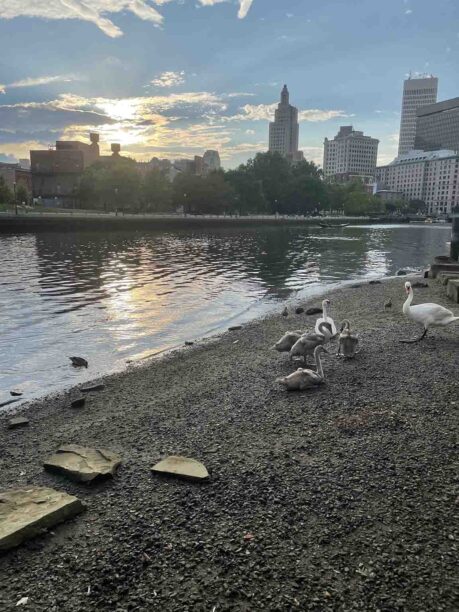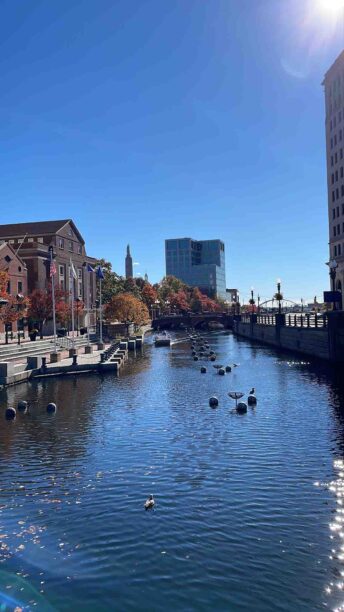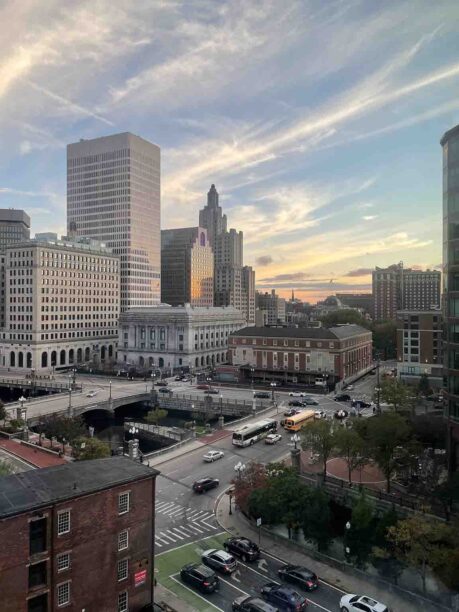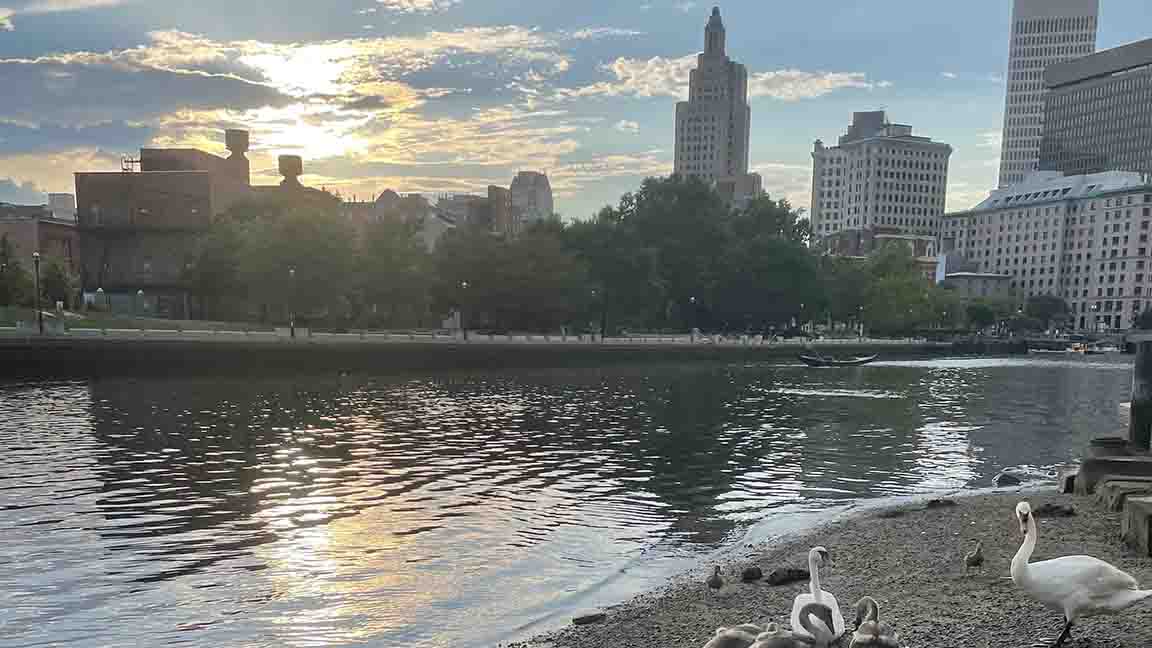December 3rd
Providence, Rhode Island
I WOKE UP ready and excited to play tour guide for my friend Mahdi, who was coming down from Cambridge to visit Providence for the first time. We’d been preparing to meet up since the summer (Mahdi, as he puts it, is “Providence pilled”) but were both so busy that it was late November before we settled on a date. I drew up a very rudimentary Google map showing our proposed route and sent it over Twitter DM along with instructions on how to get to Providence via the commuter rail.
He arrived at last, and after a small trip to my apartment—where I showed off my basic framed picture of the Kaaba, and failed to persuade him to take tea or a drink—we set off. Years of walking through Providence and noticing old plaques and monuments had well prepared me for this moment.
Interesting things I’d come to take for granted over the years regained significance when I shared them with my friend. We passed a plaque commemorating the American Revolution, which was worthy of a plaque of its own—it was dedicated in 1894. We stopped by the Irish Famine Memorial, dedicated in 2007, with its plaque lamenting the British occupation of Northern Ireland.
We had a brief walk through the Rhode Island School of Design (RISD) campus before heading for a stroll along the river, catching up about the happenings in our own lives, with an occasional tour-guide interruption from me.

“You see these swans?” I pointed out to my friend. “They have been in this downtown river for years. Just them. No other swans, they have babies occasionally, but they leave the nest when they are grown.”
Near the mouth of the river we saw a huge cargo ship anchored in the distance. I told Mahdi that I’d recently taken a liking to looking up planes and boats that I’ve seen, and learning where they’ve come from and where they’re headed. It’s fascinating to think about, as you are sitting quietly in your apartment—that there are people and goods, constantly moving all around you. When we are at rest, others are moving and vice versa. He remarked that he does the same thing sometimes; another peculiarity of life that brings people together in conversation.

We stopped for Uyghur food at a place known for its hand-pulled noodles, and then proceeded to the local Syrian bakery, where Mahdi—more versed in the intricacies of baklava and Arabic and Turkish coffee than I am—gave recommendations. While waiting for our coffee and baklava, we checked out the bookstore next door. The shop originated as a van in Los Angeles, and provides a selection of just 20 titles that changes each month. Then we walked back, baklavas and tiny coffees in hand, through Brown University (my alma mater and employer) to the RISD museum. With daylight being limited, we had left the museum for last.
There we agreed that we wanted to see the paintings; neither of us are statue bros. Nine months ago, when Mahdi took me to visit the Harvard Art Museum, we’d gotten yelled at for standing too close to the art (even before the days of climate soup protests). So now, we reenacted the Harvard scene, and took a photo of me standing too close to the art (but at a safe distance that wouldn’t get us yelled at, this time).
We looked at modern art and the typical landscapes and interiors painted by Monet, Van Gogh, et al. I am very partial to Van Gogh; I described one favorite to Mahdi as “a painting you would want to spend a holiday in.” The museum is a hodgepodge of connected buildings, with a quaint late 19th century house attached, designed so that you can walk through the typical living quarters of the American academic class of those days.

After the museum we searched in vain for a coffee shop, and settled for ordering Dunkin on the app. All day, Mahdi and I had been engaged in the familiar struggle of refusing to let the other person pay. I won when it came to lunch, he won at the Syrian bakery, and, despite promising to buy me coffee—through my use of the app—I sneakily won that round. Coffee in hand, we headed into downtown Providence to visit a gift shop owned by local artists, because one must have something appropriate to commemorate a visit to New England’s creative capital. An H.P. Lovecraft–themed piece of memorabilia picked out, we stopped a bookstore next door where Mahdi explained to me the concept of “longtermism” (for the record, he is not a proponent of this theory; we just saw “What We Owe The Future”).
Soon it was time for us to part ways at the train station. I got on the train with him, and left my friend at his seat. We can’t do this anymore on airplanes, I thought. As I left for my apartment, I realized two things: One, that even in times when the daylight is short, you can make the most of the light that you have, and two, that it’s nice to be a tour guide in your own city. I have lived in Providence for four years now and it has become familiar, if not sometimes boring—but sometimes, all you need is to walk through your city with a friend.
Thank you for reading POPULA! Add your email here to receive our newsletter!






